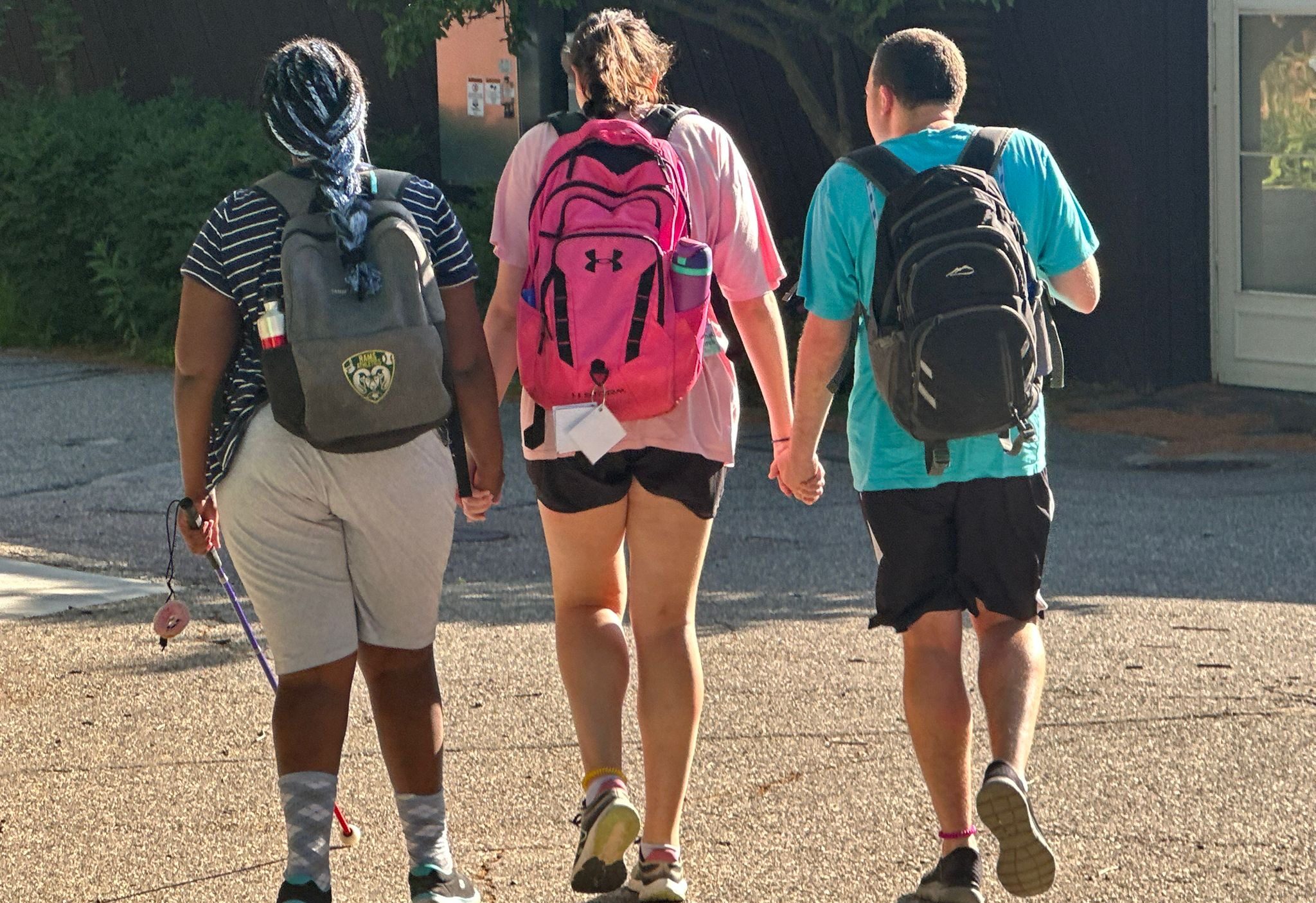by Jennifer Phillips, Keshet CEO
It’s that time of year that always feels different to me: the end of school and the beginning of camp. Something shifts. Camp has a way of making me feel and think differently. It’s the smell of summer, the excitement of campers getting ready for their favorite time of year. It’s family, friends and most of all, community.
As I sit in my sunroom, listening to James Taylor and watching the light shift through the trees, I can feel that familiar buzz of summer in the air. But this year, there’s more on my mind. I’m thinking about the war in Israel, about the pain so many in our community are feeling. In a time of uncertainty and heartbreak, I keep coming back to how much we need each other.
And that brings me to Keshet.
Inclusion has always been a part of me—how I think, how I lead, how I teach and how I live. Lately, I’ve been thinking even more deeply about what it really means. Not just as a concept or approach. Not even just as a value. But as a way of life. For me, it all comes back to one word: community.
I was lucky to grow up in a strong Jewish camp community, a place that truly felt like home. At camp, I learned what it felt like to belong. Everyone had a place. Everyone mattered. That kind of environment stays with you forever.
I didn’t think I would work with people with disabilities. At 21, I took a job with Keshet as a summer counselor, working one-on-one with a camper who needed extra support. I didn’t know then that it would change my life. It wasn’t just that I loved camp or working with kids—I knew, deep in my soul, that every camper, no matter their ability, had the right to be part of the Jewish camp experience. Not on the sidelines. Not as an afterthought. Part of it.
That mama bear instinct in me kicked in fast. I wasn’t just making sure campers were at camp. I wanted them to feel like they belonged. That they were seen and included in every part of camp life. That belief—that every person deserves to belong—is what eventually led me to become a special education teacher. I wanted to bring that same feeling into schools, classrooms and everyday life.
Inclusion has changed over the past 30 years. And so have we.
It’s no longer just about access or proximity. It’s about creating communities where people with disabilities are not only present but valued. Where they are not just in the community, they are of the community. Where they live, love, work, play and dream, just like anyone else.
I’ve watched our Keshet participants grow up from campers to roommates, coworkers, musicians and friends. I’ve seen adults walking down the street, supporting each other because they know each other so well. I’ve watched our choir perform and light up a room. I’ve seen someone help a friend get to a job, attend a social program or just enjoy a simple outing.
That’s community. That’s what we’ve built.
The impact of this kind of connection is powerful. And it’s only possible when you immerse yourself in it. When you allow yourself to really see the joy, the relationships, the humanness of it all. It’s the kind of beauty that stands out even more in a world filled with noise and uncertainty.
At Keshet, I see something different. I see song sessions where you are dancing and no one cares who’s watching. I see our adults supporting each other through challenges and cheering each other on. I see them inviting friends to join not because they’re told to, but because they want to.
I see friendship. I see inclusion. I see belonging.
And that’s what keeps me going. That’s the kind of world I want to live in—one where we each have a place, just as we are, surrounded by people who lift us up.
Because at the end of the day, community isn’t just where we are. It’s who we are.

